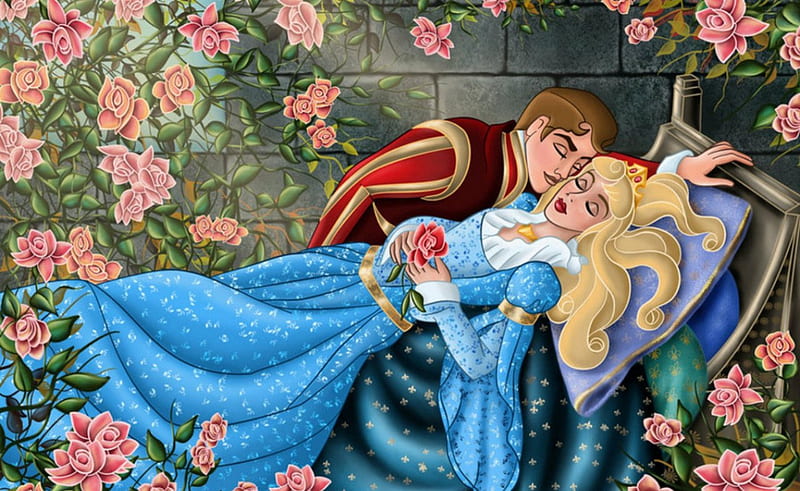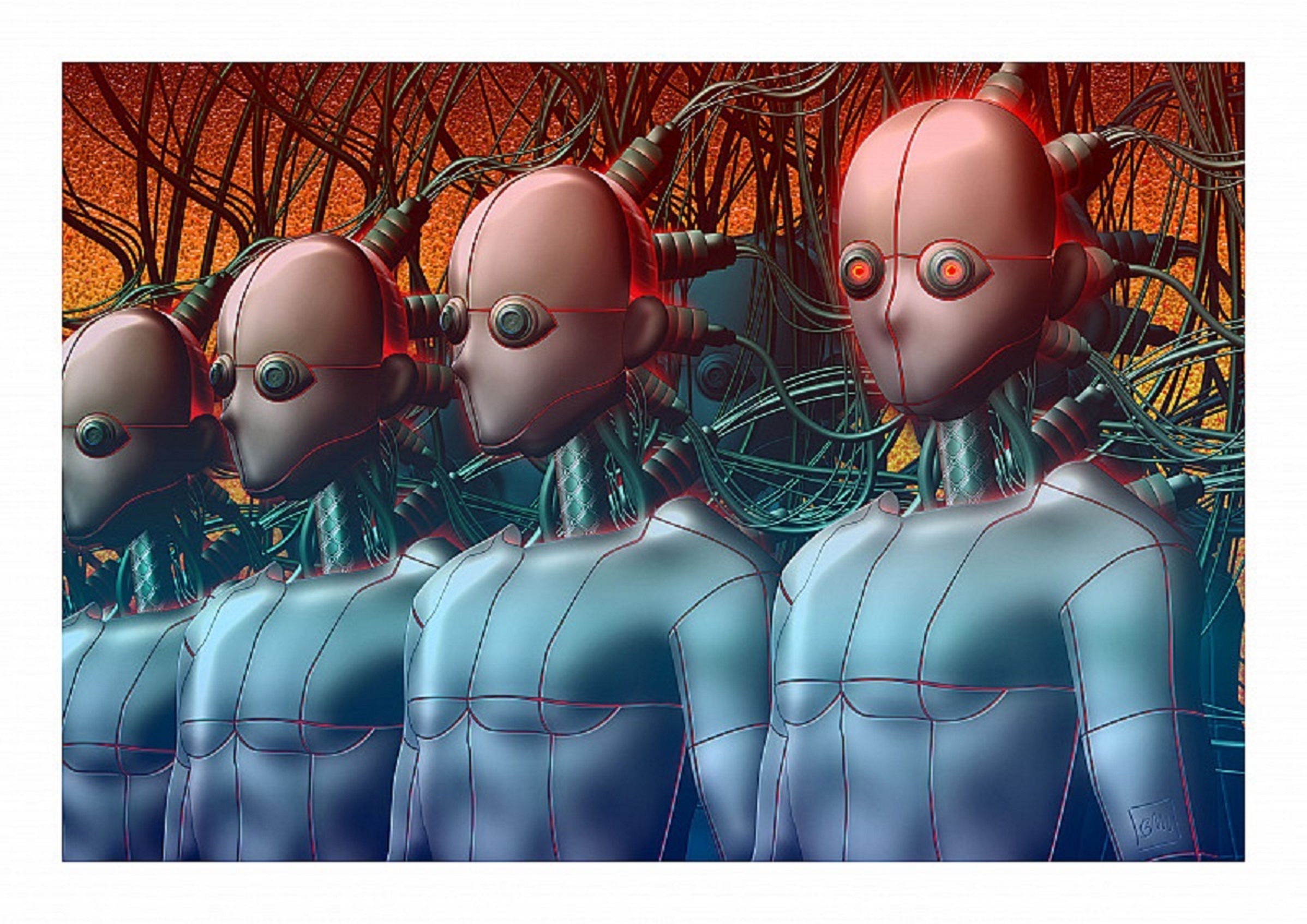Equilibrium states of consciousness are – in effect – tortuous. To wake up and be faced with yet another day full of nothing but an unrelieved E-state of consciousness (in other words, full of nothing but more of the same, more of the same, followed by more of the same again) would make the strongest hart quail, if we could but see it. There’s no relief from the pain, no respite from the monotony, no possibility of any meaningful variation, just the same old thing over and over again. All we can do to try to make this bearable for us is to play games of escaping, games of ‘getting somewhere’ when the unwanted and unacknowledged truth is that we’re not…
If this seems like a very grim appraisal of the human condition that is because this condition is, indeed, grim. It’s not our appraisal that’s making it so! Our condition is grimmer than we know; it’s grimmer that we care to know! E-states of consciousness (which is to say, mechanical states of being, machine-like states of being) are pure bondage, as the mystics have always said, and bondage is pain. There’s no such thing as a happy slave, and we’re all slaves! There’s no such thing as ‘a happy machine’.
The mystics say this alright, it is true, but no one else does. The rest of us don’t say much at all on the subject. We’re strangely quiet. We don’t talk about the pain of conditioned consciousness, so why is this? Don’t we feel the pain? Aren’t we aware of it? And if we aren’t aware of it why would we bother ourselves worrying about it? What would be the point? Why not just get on with it? It doesn’t seem as if we have much choice in the matter, after all…
The point is though that we do feel the pain, we just don’t let on to ourselves that we do! We have adapted, we have gotten used to it, and so we manage to get by. Obviously! All we need to do is look around us and we can see everyone ‘getting on with it’. Adaptation is the name of the game. Everywhere you look people are getting by, one way or another. Some even appear to be having a good time whilst they do it, so is it really as bad as all that?
Of course, sometimes we do enjoy ourselves; sometimes we genuinely do experience happiness or joy. Such states exist. The only thing is though, they are not equilibrium states. They don’t exist in the equilibrium zone. The point we’re making is that it is impossible for us to be genuinely happy, or genuinely enjoy ourselves, just as long as we are in an E-state of consciousness. That is a complete impossibility – the most complete impossibility there is. To genuinely enjoy oneself and yet at the same time be in an E-state of consciousness is a contradiction in terms. It’s a contradiction in terms because we are not ourselves when we’re in the Equilibrium Realm, and if we’re not truly ourselves then how can we possibly ‘enjoy ourselves’?
Something within us – some mechanical reflex – may appear to be having a good time but we’re not. We’re suffering – we’re always suffering just so long as we’re in the E-Realm. Even when we’re successfully adapted we’re suffering. Even when we’re winning brownie points and ‘getting ahead’ we’re suffering. The thing is that the mechanical reflex can’t really be said to be enjoying itself because it isn’t anyone in the first place. It’s only a reflex! It’s only an act, a performance. There’s no one there, there’s no one home behind the curtains, and so who is it that’s going to be feeling the enjoyment? There is only the automatic reaction, masquerading as a person. There’s only the reflex – the ‘reflex of seeking pleasure’ and the ‘reflex of avoiding pain’…
What we do to ‘get by’ in the E-realm is that we play games – we set up situations for ourselves where we think we are going to find relief, where we think we are going to (maybe) escape. As long as we manage to believe that we’re going to (possibly) find relief, that we’re going to (possibly) escape from the pain of conditioned existence, then we can carry on. That belief is our motivation to keep on putting one foot in front of another, to keep on solving one mechanical task after another.
The whole thing about ‘a game’ is that there doesn’t actually have to be an escape hatch in the system – we just have to believe that there is. Games are ‘make believe’, after all. Games are run on the basis of tokens – everything’s a token in a game. Games are systems of tokenization; they work by ‘tokenizing reality’. Nothing is real in a game; everything is ‘just pretend’. There’s no such thing really as ‘winning’ – we just agree to pretend that there is! We accept this token thing called ‘winning’ as if it really means something, which it doesn’t. What the hell is ‘winning’ supposed to be anyway? What is that? There never was any ‘real winning’ in a game – there couldn’t be because there can never be anything real in a game. ‘Real winning’ is a meaningless term. The game wouldn’t be a game if there was something real in it!
So games are the way we try to avoid the pain – the ongoing torture – of the Equilibrium state. Games aren’t the way we actually do avoid pain; they’re only the way that we pretend to ourselves that we are avoiding it! Clearly, games aren’t the way in which we genuinely do avoid the pain of the E-Realm – there’s nothing genuine in a game! There’s nothing real about a game, as we have just said. It’s all make-believe; it’s all self-deception…
So, if we’re not really avoiding the pain, what’s happening to it? Where is that pain going? This is a straightforward matter. There’s a mechanism associated with neurotic pain-avoidance that is very easy to understand – the mechanism means that we can avoid pain if we want to but only at a cost. There’s a qualification, always a qualification. We can avoid pain on the short-term alright but only at the cost of creating even more pain for our future selves than the pain we have just avoided. So there’s the short-term benefit of ‘temporarily escaping the pain’ alright, but there’s also the long-term cost of having the pain catch up with us later on along with a hefty surcharge!
This mechanism is of course very familiar to us – it’s the same thing when we want to borrow money. If we want to borrow money then there are plenty of institutions out there that will be delighted (if our credit’s good) to lend it to us, but at the end of the day it always ends with us paying back more than we borrowed. We always end up worse off, and the lending institution always ends up better off – that’s the way that it works. The same thing is true in the case of neurotic pain-avoidance – we end up worse off and the system of mechanical reflexes ends up better off. We get weaker as it gets stronger. In Gurdjieff’s terms personality benefits at the expense of essence.
An Equilibrium-state of consciousness is not just a matter of simple, straightforward pain, therefore – it’s secret pain, hidden pain, delayed pain, pain that we pretend isn’t there. Its pain that we won’t own up to, even when it’s biting us on the leg. It’s pain that we will displace – if we are at all able to do so – without admitting that this is what we are doing. It’s pain that we can’t be straight about. It’s pain that we’re ‘playing a game with’, pain that we are forever trying to get rid of, but which we never really can…
Pain that we are pretending that we don’t have (denied pain) isn’t actually any better than pain that we are owning up to. It’s not really an improvement, even though we are constantly choosing it in preference to what we might call ‘honest pain’. We always choose it in preference however because – initially – it looks as if it’s going to be easier on us. It most definitely ISN’T easier (it is in fact frankly tortuous), but it presents itself as being so. The cover story is that it’s easier and we’re desperate enough to believe the cover story every time. We want to believe it, and so we do!
We’re not really ‘choosing’ the tortuous (dishonest) type of pain of course. It’s just a reflex reaction – there was never any actual choice involved! We can’t help reacting this way. We can’t help ourselves – we’re set up that way. Our basic mechanism, our basic tropism, is to seek pleasure and avoid pain. As conditioned beings, this is what ‘makes us tick’. This is what’s called ‘attachment’ in the East – this is the ‘attraction / aversion motor’ that powers the wheel of samsara.
Whenever there is (subjective) relief from pain this always translates as pleasure. Pleasure is relief from pain. Or as we could also say, pleasure is relief from pain when that pain is not being acknowledged. Given that the E-realm is characterized by pain, and given that we are (generally) unconscious of that pain, any temporary respite from that pain is not going to be seen as it is, but in an inverted manner as an actual positive thing or quality in itself, namely pleasure. And given that we can’t ever escape from the pain of conditioned existence (which is to say, the Equilibrium-state of consciousness) the illusion that we can (the idea or perception that we can) automatically becomes ‘the ultimate commodity’, the most precious and sought-after thing in the world!
This is what pleasure / euphoria is – the illusion of escape from the inescapable pain of the Equilibrium-state. Or rather – to be more precise in our formulation – pleasure / euphoria arises in us as a result of us managing to believe in the illusion of escape from the inescapable pain of the Equilibrium Realm, which is the inescapable pain of conditioned existence. The illusion on its own is no good to us – certainly ‘the illusion when seen as an illusion’ is no good to us. There’s no euphoria in that! That’s a bit of a damp squib. The illusion is only of value to us when we fully believe in it, when we swallow it ‘hook, line and sinker’…
What we’re valuing, therefore, isn’t ‘the illusion of freedom’ or ‘the illusion of escape’; what we’re essentially valuing (even though we don’t know it) is ‘our capacity to not see that the illusion is only an illusion’. We’re valuing unconsciousness. We’re valuing our own stupidity, in other words! In order to believe in the possibility of escape and obtain the euphoria that comes about – however transiently – as a result of that belief we have to be psychologically unconscious. So inasmuch as we value ‘the euphoria of believing in the possibility of escaping from the system that we don’t really want to escape from when it comes right down to it’ (which is the false or theatrical escaping that we have available to us in our games) we must also value the state of unconsciousness. We must and we do. We value it even though it is an affliction, even though it is a curse, even though it is the cause of all our woes…
Euphoria isn’t a real thing, no matter how much we value it! Euphoria isn’t a ‘stand-alone affair’, but rather it’s a temporary cessation / diminution of an underlying, unacknowledged (or unconscious) pain that comes as part of a package (the other part of the package being an exacerbation of that pain, an accentuation or aggravation of it to the point at which it becomes impossible to remain unconscious of). Or to put this more simply, euphoria is the illusion of a positive outcome that masks the onset of an even greater degree of pain than we were in before. When we trope towards euphoria we are therefore troping towards suffering; we are exhibiting ‘a positive tropism with regard to pain’! We’re running full-tilt at the mirage of escape, a mirage which is cleverly concealing our own existential grave!
So that’s one point – that euphoria is really ‘pain in disguise’. The other point – the one that follows on from this – is that we don’t have any choice about having a positive tropism with regard to it. We don’t have any choice about being attracted to pleasure, about reacting favourably to it. That’s our mechanism. That’s what the reflex does – it seeks pleasure and avoids pain, as best it can. That’s what the reflex does and we are identified with the reflex. We think it’s us who wants the pleasure and doesn’t want the pain. We have no other way of understanding things, relating to things, other than via the viewpoint of this mechanical reflex, this basic tropism.
So having said all this, we can now go ahead and ask, “What IS ‘the Equilibrium-state of consciousness’? What does that term (which we have been using so much) actually mean? What other types of consciousness might there be?” This is not a hard question to answer. Very simply put, the E-state of consciousness is that state of ‘consciousness’ that comes about as a result of us being identified with the YES /NO (+/-) reflex of the conditioned mind. The ‘Equilibrium World’ that we are stuck in is simply ‘reality as it appears to us when we look out from the restricted view-point of the rule-based mind’. An Equilibrium system is a system that that is governed by rules such that nothing that has not been specified gets to exist, and in the same way, an Equilibrium-state of consciousness is a state of consciousness in which we can only be aware of what the rules governing the state specifically allow us to be aware of. This is just another way of talking about ‘conditioning’, therefore.
It isn’t consciousness at all that we’re talking here therefore – it’s just ‘the rules’. The rules are the boss. The rules says what’s allowed and what isn’t. Consciousness itself can’t be constrained or conditioned and yet still be worthy of the name! Consciousness itself is quintessentially open (or ‘unprejudiced’). When we are conscious we are aware of whatever it is that is there without projecting our own baggage on it – when we are conditioned however we always project our own baggage and that of course means that we are not capable of ‘seeing what is really there’. When we are stuck in an E-state of consciousness we never break free from the rules that are governing our perception – we always see ‘what we are supposed to see’ and this is the ‘equilibrium’ that we can’t move away from.
A Non-E state of consciousness, then, is a state of consciousness that goes beyond the rule. It is a state of consciousness that goes beyond ‘win or lose’. There’s no right way to see the world here, and no wrong way. To not ever go beyond right and wrong / the equilibrium state is to be in a prison cell of the mind. We can’t ever be happy when we’re a prisoner of the conditioned mind. When we can never go beyond right and wrong then, as Frank Zappa says, ‘the torture never stops’…






